1. Paying for Emergency Services

In most countries, calling an ambulance is free because, well, it’s an emergency. In the U.S., however, an ambulance ride can cost anywhere from a few hundred to several thousand dollars. Many people hesitate to call 911 because they’re afraid of the bill they’ll receive afterward. It’s a terrifying situation where people are forced to decide between getting help or saving money.
Even worse, the cost isn’t always clear upfront. Depending on your insurance and where you live, an ambulance ride might be partially covered, fully covered, or not covered at all. Some people even opt for an Uber instead of calling an ambulance just to avoid the financial burden. It’s a broken system that turns emergencies into financial nightmares.
2. Sales Tax Sticker Shock
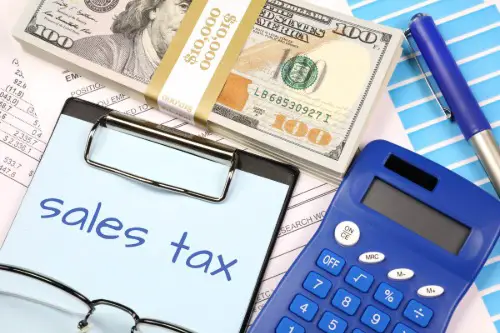
Walking into a store and seeing a price tag should tell you exactly how much something costs, right? Not in America! Here, sales tax isn’t included in the listed price, meaning you never really know how much you’re paying until you get to the register. The final total varies by state, county, and even city, making it impossible to predict.
This makes budgeting a little harder than it should be. Tourists often get caught off guard when they buy something for $9.99 and end up handing over $10.85. Even for Americans, this inconsistency can be annoying, especially when shopping in a new place. Imagine the luxury of seeing a price tag and actually paying that amount—sounds nice, doesn’t it?
3. The Pressure of Tipping Culture
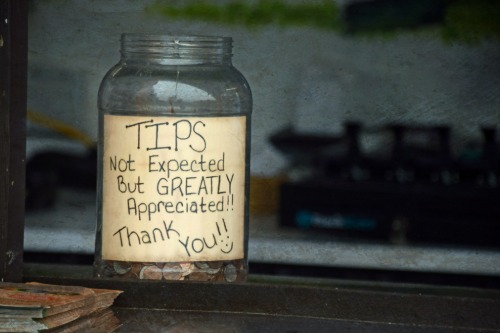
In the U.S., tipping isn’t optional—it’s expected, and getting it wrong can make you look rude. Servers, bartenders, baristas, hairdressers, and even some fast-food workers rely on tips to make a living wage. That means you have to constantly calculate an extra 15-25% on top of your bill, even when the service wasn’t great. In some places, even self-checkout machines ask you for a tip!
The worst part is that tipping etiquette is different everywhere, so it’s easy to feel unsure. How much do you tip the pizza delivery guy? What about your Uber driver? And why are we expected to tip for things that require zero personal service? It’s a stressful and expensive guessing game that never ends.
4. The Absurdity of Imperial Measurements
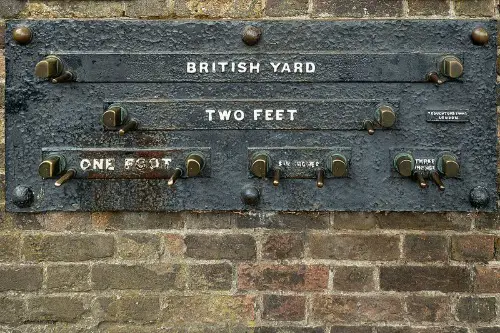
Why does America insist on using inches, feet, and miles when the rest of the world has moved on to the metric system? It makes things way more complicated than they need to be, especially for students and professionals who deal with international work. If you ever try to bake using a European recipe, you’ll quickly realize how frustrating it is to convert grams into cups. And don’t even think about trying to explain Fahrenheit to someone who only knows Celsius.
It’s even worse when traveling abroad because American measurements mean nothing to most of the world. You have to constantly convert miles to kilometers, pounds to kilograms, and ounces to milliliters. It’s a miracle that Americans ever manage to follow foreign road signs or cooking instructions. Stubbornly sticking to the imperial system just makes life harder than it needs to be.
5. The Nightmare of Health Insurance

In the U.S., getting sick isn’t just a health concern—it’s a financial crisis waiting to happen. Even with insurance, the cost of a simple doctor’s visit can be ridiculously expensive, and don’t even get started on surprise medical bills. Many Americans avoid going to the doctor because they fear what the bill will look like afterward. It’s a constant source of stress that people in other countries with universal healthcare don’t have to think about.
Understanding your own insurance plan is practically a second job. There are co-pays, deductibles, in-network and out-of-network providers, and a million other confusing terms. Even if you have “good” insurance, you might still end up paying thousands of dollars for something routine. It’s no wonder so many Americans rely on Googling their symptoms instead of seeing a doctor.
6. The Struggle to Get Anywhere Without a Car
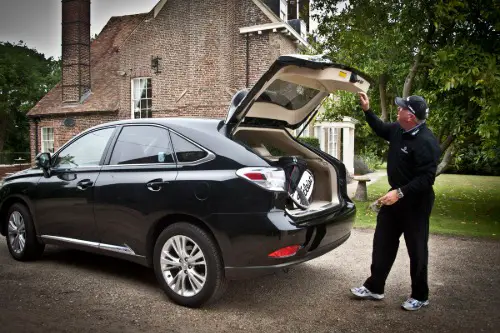
Public transportation in America is… well, let’s just say it’s not great in most places. Outside of big cities like New York, Chicago, and San Francisco, having a car isn’t just a convenience—it’s a necessity. If you don’t own one, even basic errands like grocery shopping or going to work can become a huge challenge. There are some buses and trains, but they’re often unreliable, slow, or nonexistent.
For Americans living in rural or suburban areas, ride-sharing apps like Uber and Lyft aren’t always a reliable backup. A quick trip that would take 10 minutes by car might take an hour using public transit—if it’s even available. Meanwhile, people in Europe and Asia enjoy high-speed trains and efficient metro systems. It’s no wonder so many Americans feel tied to their cars, despite the high cost of gas, insurance, and maintenance.
7. The Endless Spam Calls
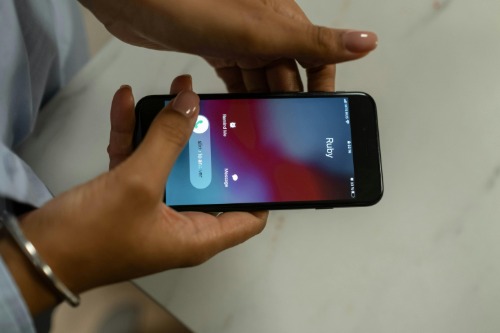
If you own a phone in America, you’re probably getting spam calls on a daily basis. Scammers, telemarketers, and robocalls have turned answering the phone into a risky game of “Do I pick up or ignore?” Even if you block one number, they always seem to find a new way to call you again. Some of them even spoof local numbers to make you think it’s someone you know.
It’s gotten so bad that many Americans don’t answer calls unless they recognize the number. Government agencies and phone companies claim they’re cracking down on robocalls, but they never really stop. Scammers have even started using text messages and emails to trick people. It’s an exhausting battle against technology that never seems to end.
8. The Pain of Student Loan Debt

Going to college in America often means signing up for decades of debt. Unlike many other countries where higher education is free or heavily subsidized, American students graduate owing thousands—sometimes hundreds of thousands—of dollars. Monthly loan payments can feel like a second rent, making it harder to buy a house, start a family, or even just save money. Some people never pay off their loans completely, carrying the debt well into retirement.
To make things worse, student loan interest rates are high, and repayment plans are often confusing. Even if you qualify for forgiveness programs, the application process is complicated and unreliable. Meanwhile, students in other countries don’t have to worry about going bankrupt just for getting a degree. It’s a financial burden that shapes the entire course of many Americans’ lives.
9. The Struggle of Fast Food Portion Sizes

In America, “medium” drinks are what other countries would call “extra-large.” Fast food portions are massive, which sounds great in theory—until you realize how much waste and overconsumption it encourages. Many Americans don’t even realize how absurdly big their meals are until they travel abroad and order a normal-sized burger. It’s no wonder obesity is a growing issue when even the “small” option isn’t really small.
The worst part is that portion sizes aren’t just about fast food. Grocery store products, restaurant meals, and even coffee cups are way bigger than they need to be. It’s great if you love leftovers, but it also makes it easy to eat way more than necessary. Sometimes, smaller really is better.
10. The Confusing Mess of Grocery Store Choices

Walking into an American grocery store can feel like stepping into a maze of endless options. Need some peanut butter? You’ll have to choose between creamy, crunchy, extra crunchy, organic, low-fat, sugar-free, or some weird new flavor no one asked for. While having options is great, it can also be overwhelming—especially when you just want something simple. Decision fatigue is real, and a trip to the store can take forever just because there are too many brands fighting for your attention.
This problem isn’t limited to food, either. There are entire aisles dedicated to different types of bread, milk, and cereal, making you wonder why we need so many versions of the same thing. Meanwhile, other countries keep it simple with just a few high-quality choices. Sometimes, you just want to buy toothpaste without analyzing 37 different formulas.
11. The Struggle to Take Time Off Work

In many other countries, paid vacation time is a given, and workers actually use it without guilt. In the U.S., though, taking time off often feels like a crime, even when you’ve earned it. Many Americans are lucky to get two weeks of paid vacation per year, and some don’t get any at all. Even when they do have PTO, there’s an unspoken expectation to check emails, take calls, or even cut their vacation short.
Some people hoard their vacation days just in case they need them for an emergency. Others simply don’t use them because they fear looking replaceable or lazy. Meanwhile, workers in Europe are taking entire summers off without a second thought. American hustle culture has made relaxation feel like a luxury instead of a basic right.
12. The Constant Fear of Credit Scores
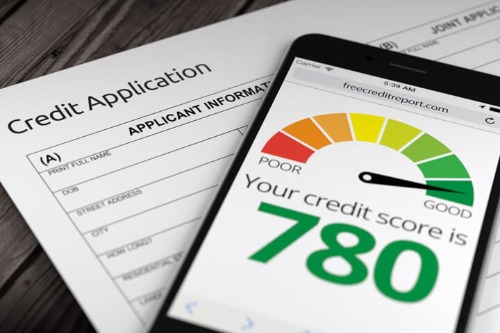
Your credit score controls so much of your financial life in America, and yet, it’s ridiculously easy to ruin. If you miss a single payment on your credit card or take out a new loan, your score can drop overnight. Want to rent an apartment? Better hope your score is high enough. Even if you pay your bills on time, factors like credit utilization and account age can still hurt you.
The worst part is how secretive the whole system is. Credit bureaus use mysterious algorithms to determine your score, but they don’t tell you exactly how they calculate it. Meanwhile, other countries manage to function just fine without making everyone obsess over a three-digit number. It’s a system designed to keep people stressed and dependent on credit.


